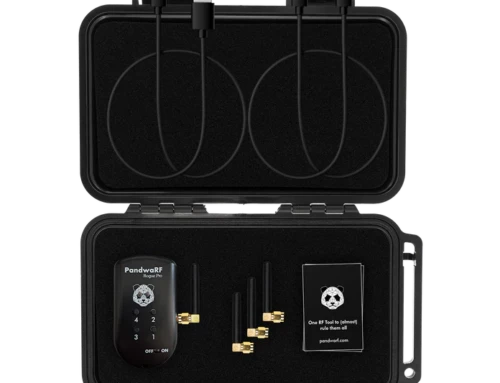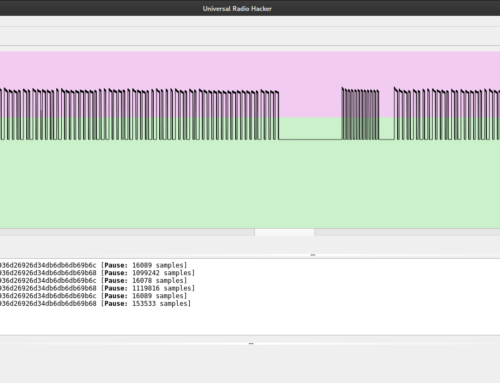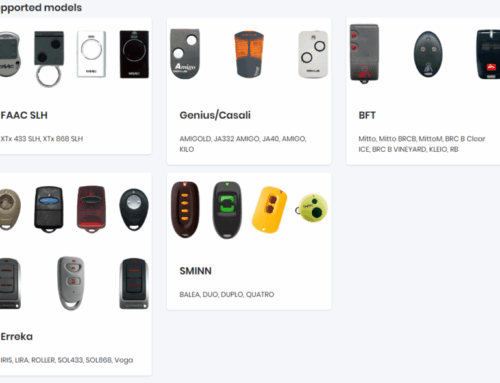We just uploaded a short video showing how easy it is to make your own implementation of an existing remote control using the GollumRF JavaScript engine.
The setup is the same:
– an Android smartphone,
– a GollumRF dongle (in this case it is a GollumRF Hack Mini),
– the original device is a Nice FLO remote control, used for garage doors, operating at 433.92 MHz, with OOK modulation,
– the garage door receiver is a Nice FLOx receiver, and the gate opening/closing is simulated with a red light.
We also have a RTL-SDR dongle + CubicSDR as a spectrum analyzer in order to visualize the frequency used by the original remote control.
This is how we can detect a “slight” frequency deviation in the emulated JavaScript version of the remote control compared to the original one.
The original remote control is at 433.92 MHz, while our “clone” is a bit lower, around 432.9 MHz.
One might notice this is a 1 MHz deviation and we cannot really call this “slight” 🙂
Don’t worry, we will fix this minor inaccuracy before shipping. It is strictly a software issue, it probably has something to do with the conversion and loss of the frequency’s LSB somewhere.
An interesting fact is that even with a 1 MHz deviation, the receiver is still able to decode the data and open the gate.
If you want to have a closer look at the way the script is built, here it is:
function main() {
var invert = -1;
var rate = 1500; // Data rate (bits/s))
var word = "\xB2\xCB\x2C\xB2\xC8\x00\x00\x00\x00"; // Fixed code payload
gollumRfSetupConfig();
gollumRfInitDongle();
gollumRfSetModulation(mod, invert);
gollumRfSetBitRate(rate);
gollumRfSetMaxPower(0); // Transmit power: 0dBm
gollumRfXmitAsync(word, 10, 0, 0, 1); // Transmit data 10 times
}
main();
We are looking forward to seeing what kind of script you, our dear backers, will write.
We will soon set up a script sharing place where you can exchange and discuss your achievements.
Stay tuned!






